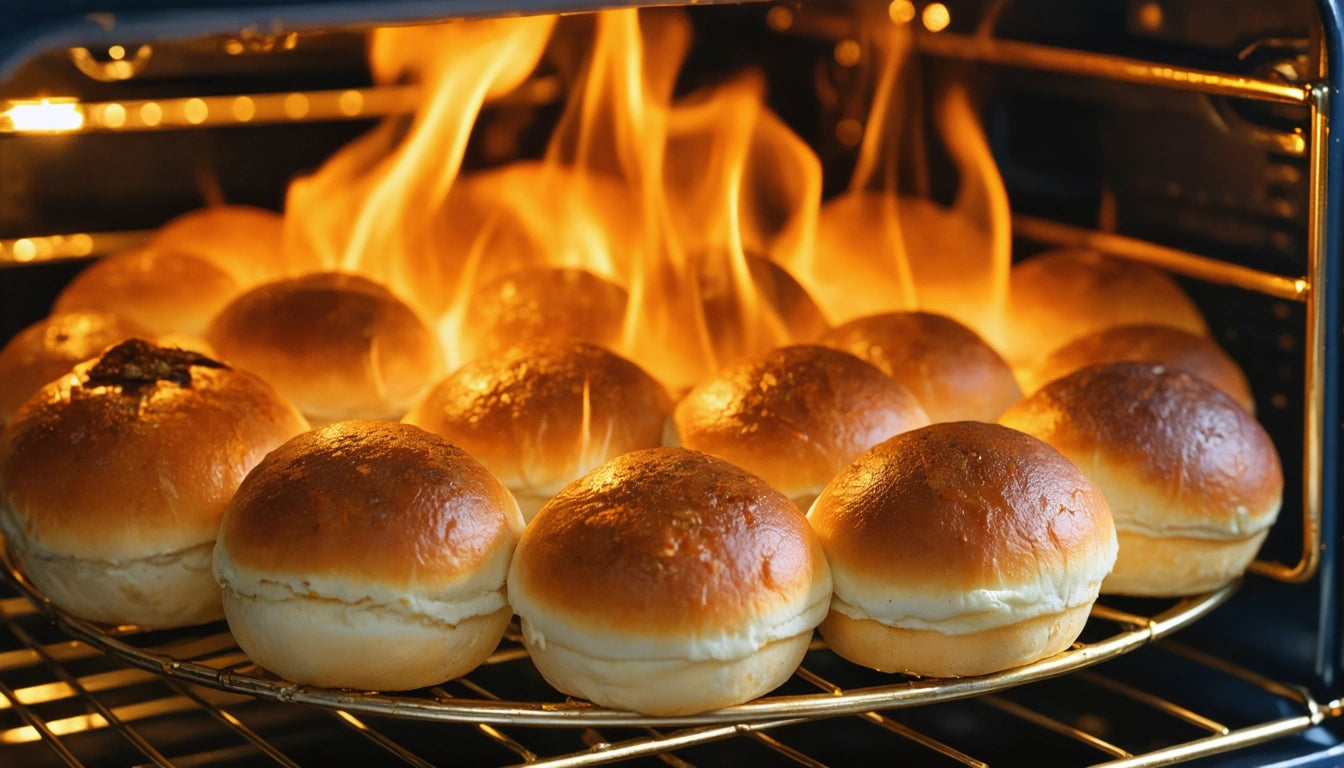Table of Contents
- Drying Cannabis in the Oven: Basics and Considerations
- Step-by-Step Guide to Drying Cannabis in the Oven
- The Decarboxylation Process: Essential for Edibles
- Baking with Cannabis: Tips for Successful Edibles
- Storage Solutions for Dried Cannabis and Edibles
- Best Practices and Future Innovations in Cannabis Processing
How to Safely Dry and Bake with Cannabis in Your Oven
Home processing of cannabis has become increasingly popular as more consumers seek to customize their experience. Whether you're looking to expedite the drying process or create homemade edibles, your kitchen oven can be a valuable tool when used correctly. This guide explores how to dry cannabis in the oven and how to bake with cannabis safely and effectively.
Drying Cannabis in the Oven: Basics and Considerations
While traditional air-drying methods typically produce the best quality results, as outlined in this comprehensive drying guide, oven-drying can be a viable alternative when time is limited. However, it's important to understand the tradeoffs.
Can You Dry Weed in the Oven?
Yes, you can dry cannabis in the oven, but it requires careful temperature control. Excessive heat can degrade cannabinoids and terpenes, reducing potency and flavor. The ideal oven temperature for drying cannabis is between 125-140 °F (52-60 °C), which removes moisture without significant degradation of beneficial compounds.
Pros and Cons of Oven Drying
- Pros: Speed (1-2 hours vs. 7-10 days for traditional drying), convenience, reduced risk of mold
- Cons: Potential loss of terpenes, harsher smoke, less complex flavor profile, risk of overdrying
Step-by-Step Guide to Drying Cannabis in the Oven
If you've decided that learning how to properly dry cannabis buds using an oven is necessary, follow these steps carefully:
Preparation
- Break down larger buds into smaller, consistent pieces
- Line a baking sheet with parchment paper
- Arrange buds in a single layer with space between pieces
- Use an oven thermometer to verify actual temperature (oven displays are often inaccurate)
Temperature and Timing
For drying without decarboxylation (if you plan to smoke the cannabis):
- Preheat oven to 125-140 °F (52-60 °C)
- Leave oven door slightly ajar to allow moisture to escape
- Check every 10 minutes, gently turning buds
- Total drying time: 30 minutes to 1.5 hours, depending on moisture content
The Decarboxylation Process: Essential for Edibles
If you're planning to bake with cannabis, decarboxylation is a crucial step. This process converts THCA into active THC through controlled heating. This detailed guide on how to decarb weed provides multiple methods, but the oven remains the most accessible option for home users.
Decarboxylation Temperature and Time
- Preheat oven to 240 °F (115 °C)
- Spread ground cannabis evenly on a parchment-lined baking sheet
- Bake for 30-40 minutes, stirring halfway through
- The cannabis should turn a light to medium brown and feel dry to the touch
Baking with Cannabis: Tips for Successful Edibles
Once your cannabis is properly dried and decarboxylated, you're ready to incorporate it into recipes. The most common approach is to infuse it into a fat-based ingredient like butter or oil.
Creating Cannabis-Infused Butter or Oil
- Combine decarboxylated cannabis with butter or oil (typically 1 cup fat to 7-14 grams cannabis)
- Simmer on low heat (160-180 °F) for 2-3 hours, stirring occasionally
- Strain through cheesecloth or fine mesh strainer
- Cool and refrigerate until ready to use
Dosing Considerations
Proper dosing is critical when baking with cannabis:
- Start with small amounts (5-10mg THC per serving for beginners)
- Calculate potency based on the estimated THC percentage of your starting material
- Divide total THC content by the number of servings in your recipe
- Always label edibles clearly and keep away from children and pets
Storage Solutions for Dried Cannabis and Edibles
Proper storage extends the shelf life of both dried cannabis and finished edibles. For optimal freshness and potency, consider using high-quality mylar storage bags which provide excellent protection against light, air, and moisture—all factors that can degrade cannabis products over time.
Storage Best Practices
- Store in airtight containers in a cool, dark place
- Keep away from direct sunlight and heat sources
- Monitor humidity levels (58-62% is ideal for dried flower)
- Consider using humidity control packs for long-term storage
- Label all products with content and date of production
For those who properly dry and cure cannabis at home, these storage practices help preserve the results of your careful work.
Best Practices and Future Innovations in Cannabis Processing
As home cannabis processing evolves, several best practices have emerged for those learning how to dry weed in the oven or how to bake with cannabis:
- Use an oven thermometer to verify temperatures
- Consider a convection oven for more even heating
- Explore sous vide methods for precise decarboxylation
- Invest in a quality grinder for consistent particle size
- Document your process and results to refine your technique
Looking forward, innovations in home processing equipment are making cannabis preparation more precise and efficient. From dedicated decarboxylators to terpene-preserving drying techniques, the future promises better results with less guesswork for home enthusiasts.
Whether you're drying a small batch in a pinch or preparing for a baking session, your oven can be a valuable tool in your cannabis processing arsenal. By following these guidelines and quick and effective methods to dry weed, you'll be well on your way to successful home processing.











Leave a comment
All comments are moderated before being published.
This site is protected by hCaptcha and the hCaptcha Privacy Policy and Terms of Service apply.